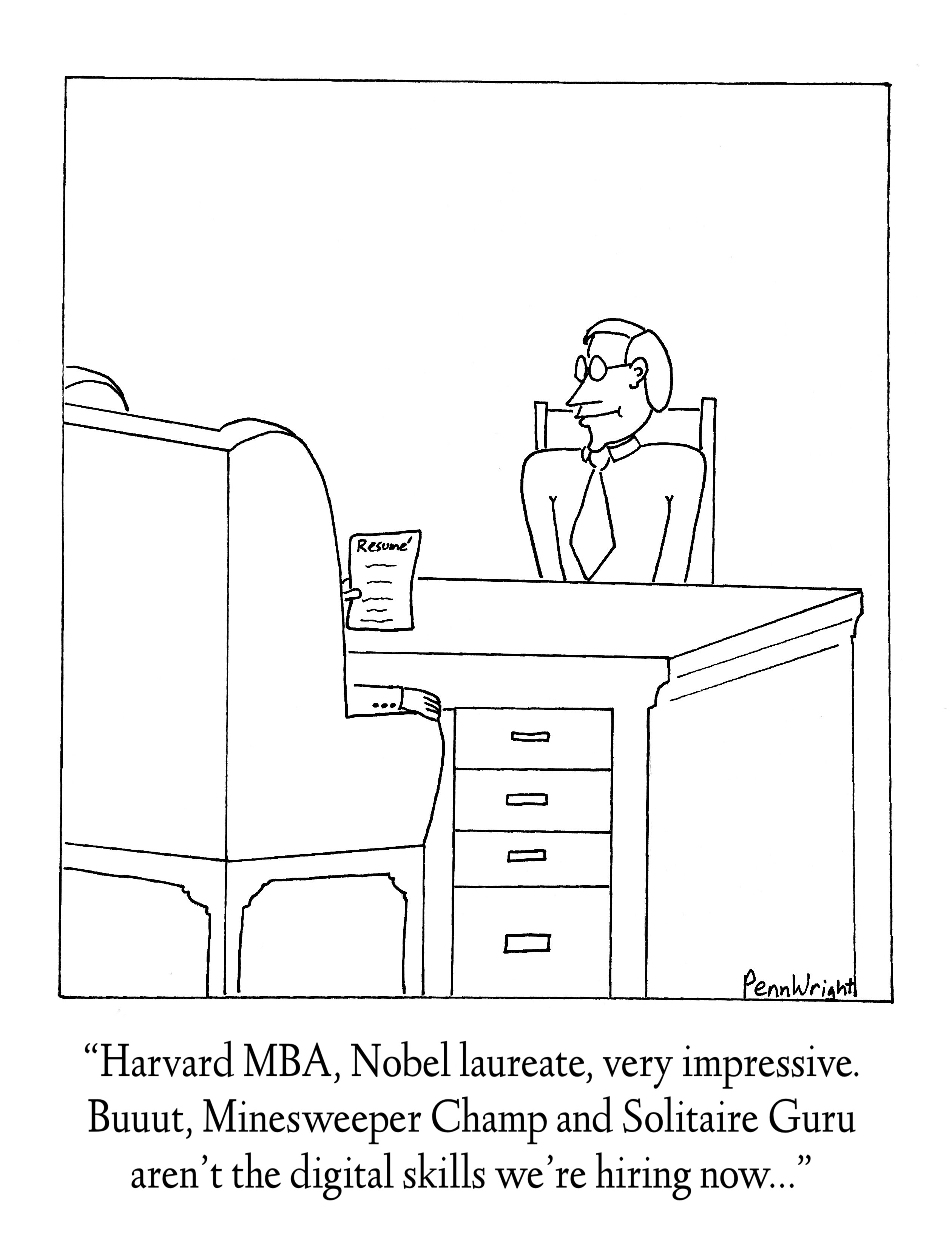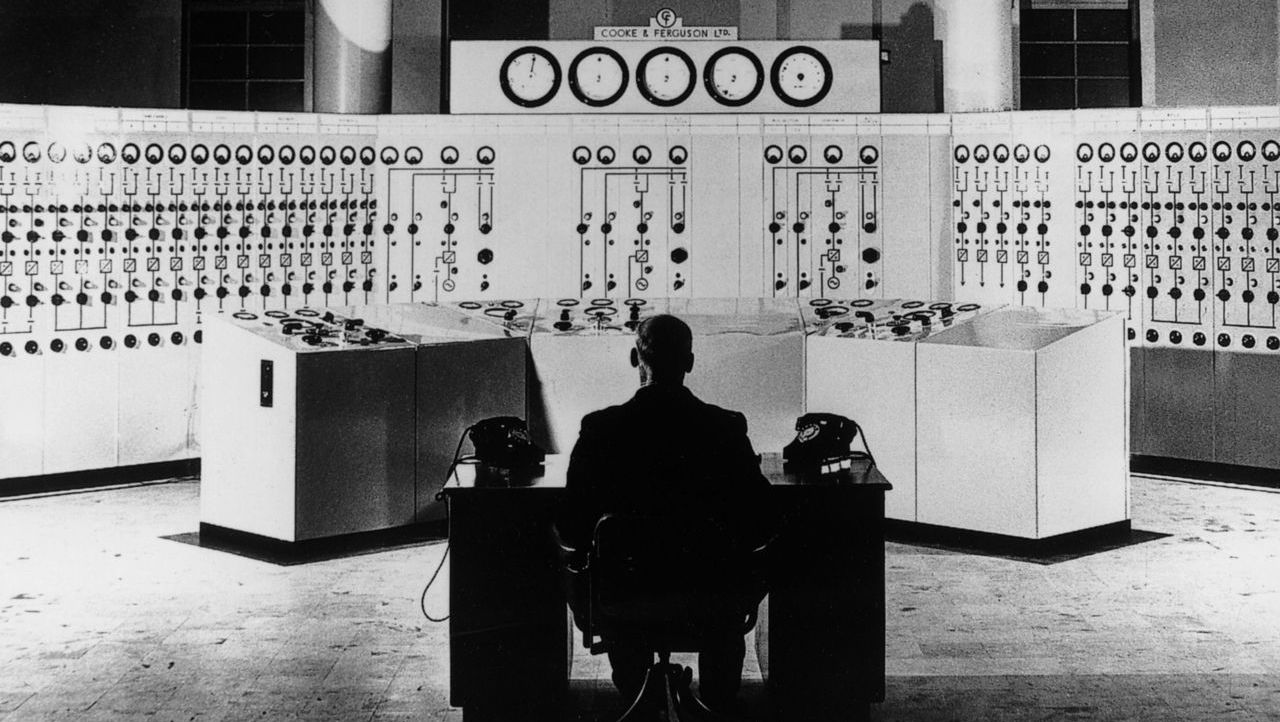We all have varying mixes of IQ and EQ – academic intelligence and emotional intelligence. For many years, scholars and “people-persons” have debated which is a better indicator of success in life. These debates may finally come to an end as a new form of intelligence takes shape: digital intelligence. Abbreviated as DQ, digital intelligence may take precedence over both IQ and EQ as it affects all facets of our social, emotional, cognitive, and professional lives.
We’re bringing more and more devices into our daily environments and as a result, our behaviors evolve with them. Children are teaching their parents how to use smartphones and babies are learning to use iPads before they speak. These are obvious indicators of the importance of digital intelligence.
DQ Basics
Whether you know it or not, digital intelligence is a growing part of our cultural identity. And adapting to this growth is quite challenging. I have a friend who’s digital communication skills (texting) are lacking so badly that it affects the strength of his friendships. One of my relatives just lost all their photos because they weren’t uploading them to the cloud.
But, understanding how to text, backup your photos, or troubleshoot a computer error message is just a small sliver of digital intelligence. DQ is a massive layer of our identity that can be divided into 8 parts:
- Usage – Managing the amount of time spent on devices, as well as balancing productivity and distractions.
- Identity – Developing as a Digital Citizen by building an identity around interests, creating content with integrity, and spreading messages one cares about.
- Rights – Understanding how to handle personal and public information with discretion.
- Literacy – Enhancing one’s technical abilities by navigating available learning resources. And, distinguishing between trustworthy and fake content, contacts, and information.
- Communication – Understanding the lasting permanence of all forms of data collection (posting, messaging, searching), and the consequences associated with leaving a digital footprint that doesn’t positively reflect on an individual.
- Emotional Intelligence – Overcoming the digital divide between individuals, being cognizant of other people’s feelings, and bringing empathy into online communication.
- Security – Protecting one’s data by creating strong passwords, updating protective software, and recognizing possible cybersecurity threats.
- Safety – Detecting cyberbullying situations and handling hateful situations wisely.
We pay close attention to our identities in the real world, shading our flaws and shining our advantages. However, technology has created an entirely new environment in which we must manicure our lifestyle.
The formal definition of DQ is the sum of technical, mental and social competencies essential to digital life. It encompasses the knowledge, skills, attitudes, and values that are needed to thrive as responsible members of the online world and to be confident in handling the challenges and demands of the digital era.
Doesn’t that sound like the mix of IQ and EQ that helps us navigate the physical world?
We’ve all spent a considerable amount of time doing similar “lifestyle manicuring” in the real world, ranging from how we spend our time to how we present ourselves in certain environments. For instance, I’ve changed up my vernacular to better present myself in the professional world.
Lifestyle manicuring again with our digital selves is a lot to take in. Especially considering most of us have fairly rock-solid habits. So, because managing one’s digital intelligence is such a complex undertaking for adults, most of the DQ initiatives available are about focused on the youth.
Uncharted Territory
A study by Common Sense Media found that 38 percent of kids under age 2 are using tablets or smartphones before they can even string together a sentence. Nursery rhymes and baby rattles are being replaced by YouTube videos and trending apps.
Undoubtedly, molding our youth with technology’s helping hand leaves a lot of unknowns. There’s so much technological potential in the child that learns to use an iPad before they can even speak. But, there’s also a lot of negative paths this can lead down.
As we see with teens today that were the first to really grow up with smartphones, unrestricted use of the internet is a Catch 22. Devices and digital environments provide a lot of opportunities, but also a lot of harm.
Jean Twenge’s essay “Have Smartphones Destroyed a Generation?” made a case against social media, saying it’s the culprit for stark rises in loneliness, depression, and suicidal thinking among teens today. On the contrary, the introduction notes that this generation has sharply lower rates of alcohol use, teen pregnancies, unprotected sex, smoking, and car accidents than previous generations.
So, is that what a “destroyed generation” looks like?
Realistically, the dangers teens must face are transitioning from physical pressures to digital hardships. Reduced digital empathy, excessive screen time, digital addiction, cyber-bullying, online grooming, digital identity theft, online privacy mismanagement, exposure to digital misinformation operations, etc… These are the problems facing our youth.
The New D.A.R.E.
Born out of a World Economic Forum workshop, the DQ Institute may be the remedy for many of these problems. The DQ Institute is building a global coalition of stakeholders to bring digital intelligence education to every child through interactive video games, workshops, and activities.
In just nine short months, the movement has mushroomed into a 100+ member coalition that has reached over 600,000 children in more than 30 countries, across 15 different languages. Child DQ was increased by 10% on average, which translated into a 15% reduction in online-related threats.
In many ways, the DQ Institute is the 21st-century D.A.R.E. program. Let’s just hope the DQ Institute is more effective than the nationwide “Dare to resist drugs” in-school movement.
Even though most attention is on developing the youth’s DQ, that doesn’t mean they’re the only ones that need help.
Digital Intelligence for Adults
Digital intelligence is a complex and emerging part of all our identities. We all can benefit from an understanding and improvement of our DQ.
While many of us may take pride in the “street smarts” we’ve developed to get ahead – the behaviors we’ve used to navigate our professional and social relationships. “Street smarts” in the 21st-century refers to the streets of Facebook, LinkedIn, and your Email Inbox. These are the places where people are getting ahead.
Getting ahead in life now means getting ahead of technology. Or at least being up to date on your digital self. Improving both professionally and socially comes down to improving your digital intelligence regarding your digital identity.
Perhaps you’ve gotten along just fine up to this point without assessing your DQ. Maybe you’ve thought about Internet privacy, security, and safety. But, a conscious consideration of all areas of DQ is needed to excel in the future. Conscious attention to our DQs is what will ensure a functioning, healthy society.
It doesn’t hurt to do a little self-reflection and see where you may be able to improve. But, take it slow. Since there are eight different components to Digital Intelligence, reflect on one at a time.
Upstanding Digital Citizens
We all strive to be honest, functioning members of society by taking on responsibility and fighting for causes. The profession we work at every day, the charities we donate our time and money toward, the discussions we have about ideas. In the physical world, we hold ourselves and each other accountable to a certain standard of contribution. This is all part of being a citizen.
How are you bringing this level of contribution to the digital world?
The discussions you have through email and social media should reflect your values and the work you do. The articles you share and the groups you join should reflect the causes you care about. As a Digital Citizen, it’s your duty to uphold the same standards you have in the physical world.
How are you aligning your identity with your actions as a Digital Citizen?
Often times, we interact in the digital world with far less inhibition. It’s much easier to release our heightened emotions (anger, disgust, surprise) on the Internet. But, does this actually reflect the identity you’ve carefully crafted in the physical world?
What level of integrity do you hold your online interactions to and how does it differ from your physical interactions?
The collective activity and emotion you display in the digital world has an impact in the same way that your actions at work, at home, or in public have. The digital world is developing and it’s your duty to contribute as a Digital Citizen.
Take a look at a guy like Gary Vaynerchuk who understands what it means to be an upstanding Digital Citizen. He’s reflected on what he wants to contribute and carefully translated his identity into his digital actions. By most standards, he’s a model Digital Citizen.
What are you doing to help mold the digital world into a pleasant environment, as you do in the physical world?
The people that choose to care about being an upstanding Digital Citizen and dig deep in improving their Digital Intelligence are the ones that will find great success in the growing digital environment. Yesterday will always be the best day to start improving yourself. But, the second best day is today.
I put together an exclusive Digital Identity series to help you adapt to technological change and accelerate your digital intelligence by developing a systematic approach to thinking about, communicating, and protecting your digital identity.
This Digital Identity series provides resources for both digital novices and savants plus it can be done from any location.



This article is fantastically insightful. Thank you for sharing – I feel enlightened and encouraged.
fastest cryptocurrency exchange swaplab – nokyc switchain, eth changelly
Full Report https://1xslots-casino.site